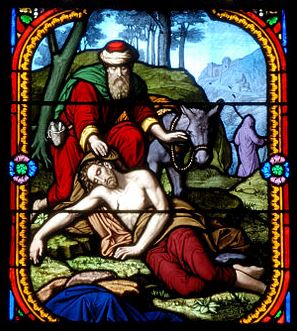Transforming: The Church as Agent of Change in the Parable of the Good Samaritan
The shocking parable of the Good Samaritan provides an example of how the church can be an agent of transformation. In this story from Luke 10, a despised minority person demonstrates God’s love and shows today’s Christians the essence of authentic social transformation.

Image: Romary / Wikimedia Commons.
The story of the Good Samaritan is one of the best-known and best-loved of Jesus’ parables. For many it has become the story of the archetypal good guy who unselfishly helps a stricken stranger. What is more, he does so at great personal expense and inconvenience and without the prospect of getting anything in return. To be sure the above portrayal is there, but the story is much more than that. In fact, beneath the story is a paradigm of how God wants those in His kingdom to affect their world.
A Lawyer’s Bold Question
The setting is key to understanding parables.
The Lawyer’s Astute Answer, But Hidden Motive vv. 27-29
Without hesitation (I imagine), the lawyer quotes two verses that summarize the heart of the Decalogue, or Ten Commandments: “’You shall love the Lord your God with all your heart, and with all your soul and with all your strength, and with all your mind’ [Deut. 6:5]; and, ‘Love your neighbor as yourself’” [Lev. 19:17]. His answer actually distills Israel’s covenantal responsibility to two all-encompassing principles of the Torah, i.e., to love God supremely and to love your neighbor as yourself. Jesus can hardly find fault with this answer. After all, on another occasion, the Pharisees asked Jesus to identify the greatest commandment in the Law, and he answered with the same two scriptures adding, “All the Law and the Prophets hang on these two commandments” (See Matt. 22: 37-40). Consequently, Jesus affirms the correctness of his answer and says, “Do this and you will live.”4 Nevertheless, the answer raises the fundamental dilemma for a Jew. Under the Law, the covenant responsibility of loving God is inseparable from loving ones neighbor as oneself. Jewish teachers tended to identify “neighbor” with “fellow countryman” (i.e., Israelite).5 However, the broader context of Moses’ instruction was given to all the congregation of Israel (Lev. 19:2) and dealt with how they were to conduct themselves as a “holy” people. This included how they were to treat the “stranger” (v. 10) in the land. The lawyer’s question, “Who is my neighbor?” is really asking, “To whom do I owe that covenantal love Moses spoke about?”
Category: Biblical Studies, Winter 2009


